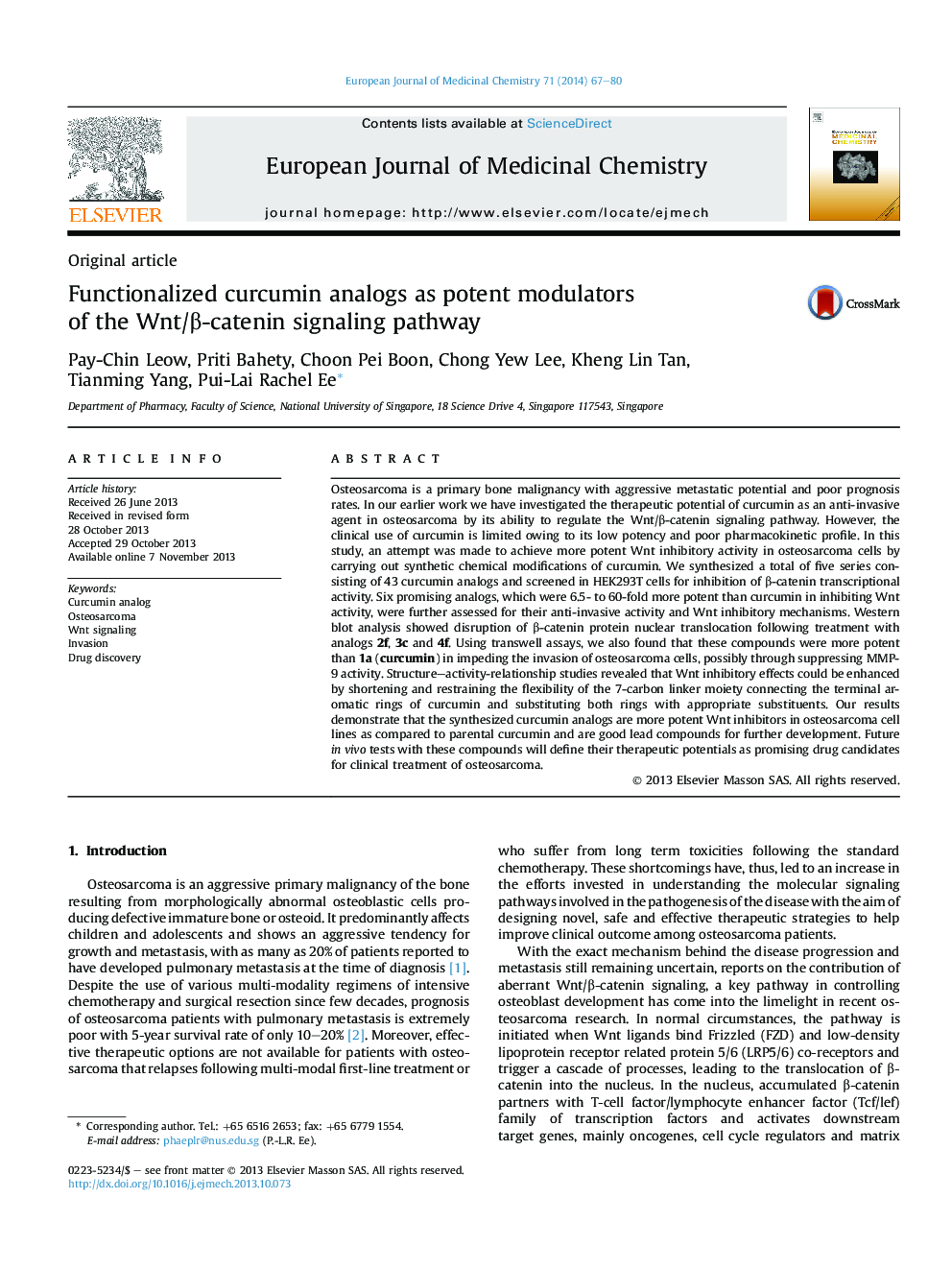| کد مقاله | کد نشریه | سال انتشار | مقاله انگلیسی | نسخه تمام متن |
|---|---|---|---|---|
| 1392582 | 1501145 | 2014 | 14 صفحه PDF | دانلود رایگان |

• A total of five series of curcumin analogs were synthesized to study Wnt inhibitory effects.
• Six analogs were more potent than curcumin in inhibiting β-catenin nuclear translocation.
• Potent analogs reduced U2OS cell invasion and MMP-9 protein levels.
• SARs for these analogs as anti-cancer agents were well studied.
Osteosarcoma is a primary bone malignancy with aggressive metastatic potential and poor prognosis rates. In our earlier work we have investigated the therapeutic potential of curcumin as an anti-invasive agent in osteosarcoma by its ability to regulate the Wnt/β-catenin signaling pathway. However, the clinical use of curcumin is limited owing to its low potency and poor pharmacokinetic profile. In this study, an attempt was made to achieve more potent Wnt inhibitory activity in osteosarcoma cells by carrying out synthetic chemical modifications of curcumin. We synthesized a total of five series consisting of 43 curcumin analogs and screened in HEK293T cells for inhibition of β-catenin transcriptional activity. Six promising analogs, which were 6.5- to 60-fold more potent than curcumin in inhibiting Wnt activity, were further assessed for their anti-invasive activity and Wnt inhibitory mechanisms. Western blot analysis showed disruption of β-catenin protein nuclear translocation following treatment with analogs 2f, 3c and 4f. Using transwell assays, we also found that these compounds were more potent than 1a (curcumin) in impeding the invasion of osteosarcoma cells, possibly through suppressing MMP-9 activity. Structure–activity-relationship studies revealed that Wnt inhibitory effects could be enhanced by shortening and restraining the flexibility of the 7-carbon linker moiety connecting the terminal aromatic rings of curcumin and substituting both rings with appropriate substituents. Our results demonstrate that the synthesized curcumin analogs are more potent Wnt inhibitors in osteosarcoma cell lines as compared to parental curcumin and are good lead compounds for further development. Future in vivo tests with these compounds will define their therapeutic potentials as promising drug candidates for clinical treatment of osteosarcoma.
Figure optionsDownload as PowerPoint slide
Journal: European Journal of Medicinal Chemistry - Volume 71, 7 January 2014, Pages 67–80